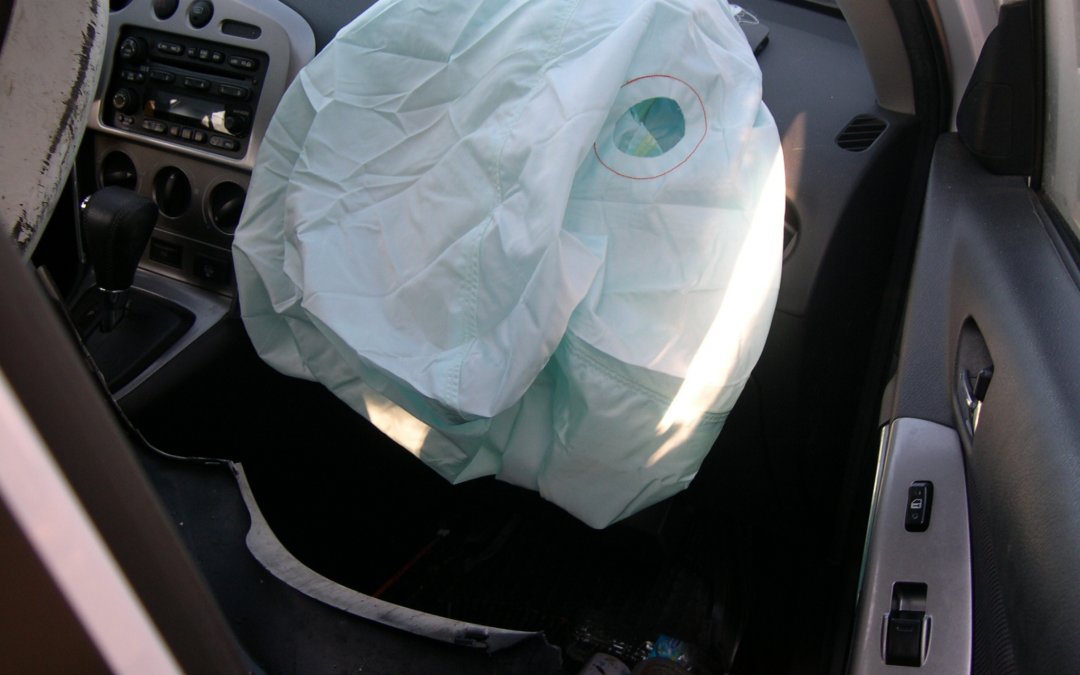WASHINGTON — The National Highway Traffic Safety Administration divulged details of its investigation into defective airbag inflators, manufactured by ARC Automotive and Delphi Automotive. The agency seeks to recall 52 million airbag inflators — one of the largest automobile callbacks in recent history.
Thursday’s meeting, which was open to the public, was cited as a “rare move” by the agency. The NHTSA first announced the recall last month.
Most automotive companies choose to comply with voluntary recalls issued by NHTSA. But when NHTSA called for one in May, ARC Automotive refused to comply. On Sep. 5, the agency struck down an initial decision to recall ARC Automotive’s airbag inflators — a step toward an official recall.
According to federal auto safety regulators, the airbags were prone to rupturing, which could cause metal fragments to hurl at passengers. So far, the airbags have injured seven people and killed one person. The airbag inflators were incorporated into vehicles made by 12 carmakers, including Ford, General Motors and Hyundai.
“Airbags have saved approximately 50,000 lives in the last 30 years,” said Cem Hatipoglu, NHTSA’s Acting Associate Administrator for Enforcement. “However, airbags that failed to perform appropriately are also a serious safety problem.”
Based on the NHTSA’s investigation, debris left in the inflator during the manufacturing process can loosen. During a deployment, large debris blocks airflow out of the inflator, which can cause the rupture.
“This issue doesn’t only render the airbag ineffective of doing its job of saving lives,” Hatipoglu said. “It also turns the airbag itself into a device that can cause serious injury.”
Donna Glassbrenner, a mathematical statistician at the National Center for Statistics and Analysis, said the agency can reasonably assume that ruptures will continue, based on available information. One out of 370,000 future airbag deployments is likely to result in a rupture, she said.
“While there is always uncertainty in predictions, using available data allows the agency to make the best possible decisions in the face of that unavoidable uncertainty,” Glassbrenner said.
Any one of ARC Automotive’s 52 million inflators presents a risk, so a complete recall is needed, said Sharon Yukevich, Division Chief of the NHTSA’s Office of Defects Investigation.
Stephen Gold, who represented ARC Automotive, pushed back on the NHTSA’s characterization of the airbag inflators. He described the seven ruptures as “isolated incidents,” rather than a “systemic defect.”
“Setting a low threshold for establishing a safety effect is simply unprecedented in the history of NHTSA,” Gold said.
The meeting presented a chance for victims of ruptured airbags to share their stories.
In August 2021, Jacob Tarvis lost his mother when her vehicle’s airbag inflator ruptured in a car collision. Following her death, Tarvis, who was then 22, was appointed guardian of all six of his siblings, as the family struggled to process their grief. He hopes no one else has to experience what his family has, he said.
“How many others have suffered or will suffer?” Tarvis said. “More moms don’t need to die. More kids don’t have to be raised by their siblings.”
Kevin Fitzgerald represented Recall Awareness, an organization that advocated for the ongoing recall of Takada airbags. He expressed frustration at ARC Automotive’s refusal to comply with the recall.
“Our loved ones are not statistics,” Fitzgerald said. “ARC, Delphi — hear me now, your refusal to act is not just corporate negligence, it is a moral failing of the highest order. We can’t afford to let history repeat itself.”
The public can file written submissions until Dec. 4, which NHTSA will take into consideration as to whether to order an official recall.


